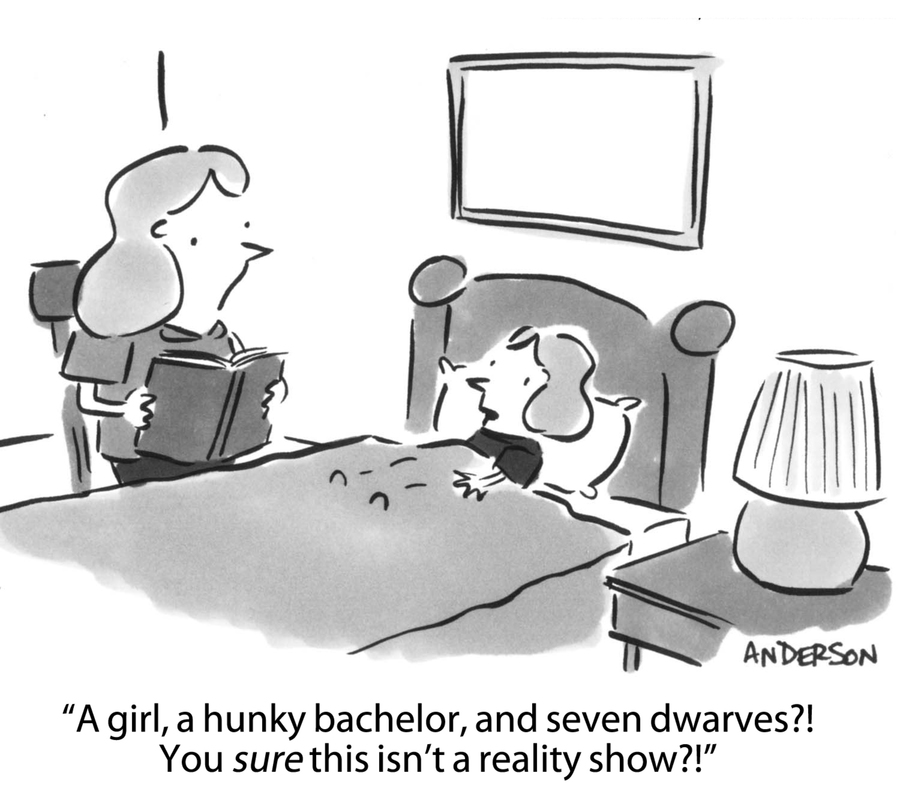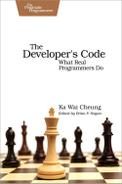Lessons from the Cooking Industry
Take the cooking industry. Emeril Lagasse, Bobby Flay, Mario Batali, and Gordon Ramsay are exuberant (sometimes annoyingly so) chefs whose passion oozes from their pores. Their passion reaches not just other chefs but the masses. Our (less famous) contemporaries don’t have that same kind of global appeal. There are no programmer celebrities whose reach stretches beyond the engaged eyes of their fellow programmers.
At first, you may think it’s because people generally want to cook more than they want to program. However, I can assure you that while I routinely salivate when a chef prepares a horseradish-crusted salmon with braised greens and smashed new potatoes, I will not be making one for myself anytime soon. The cooking industry has found a way to sell its craft to everyone, even if many of us will never deglaze a pan in our lives.
Maybe it’s because we just like to eat. Food is visually stimulating. Watching someone prepare a meal stirs our most primal emotions. Some call it food porn. But the modern-day buzz about food hasn’t always been like this. After all, cooking shows have been around for decades. Most of us have heard of Julia Child, but ever hear of Justin Wilson, Jeff Smith, or Graham Kerr? They had their own cooking shows for years but lived in a far less cooking-crazed society. They never gained the omnipresent appeal their modern-day contemporaries have today. What shifted?
In the olden days, cooking shows felt like being in your grandmother’s kitchen. A couple of cameras and some pedantic talk about a quarter cup of this and a teaspoon of that. Cooking shows were made for people who wanted to...cook. They never stretched further beyond their audience. Cooking was just about cooking. Today’s shows slice from a completely different angle.
First, they emphasize the detail. There’s the close-up shot, and then there’s the closer-up shot—the one where you can see the marbling of a thick slab of tenderloin while double-checking that the chef’s fingernails are clean. HD television has helped the food industry, as much as any other industry, sell its stuff. In bygone days, a steak was just a steak. Now, it’s about the intricate marbling, flowing juices, and grill marks. The detail is where the appeal lives.
Second, today’s shows make cooking approachable to everyone. Long gone are the days where TV cooking was just about following a recipe. Today’s shows emphasize simplicity. Everyone can do it. Thirty-minute meals, $5 dishes, and having a good time with friends. Cooking is feasible and entertaining.
Chefs play up their food like royalty. Passion lives in their description of ingredients and flavors, even if only using nondescript adjectives like fresh, flavorful, and zesty. Nowadays, chefs always taste their own food (usually at the climactic end of the show), exalting what magic it’s doing to their taste buds in sensationalized “mmms.”
Even further, the bad stuff sells. Go to a real restaurant kitchen on a Friday night and see the real story. Screaming, sweat, dropped food, and a general disaster waiting to happen. “System D” in Anthony Bourdain’s The Nasty Bits tells a far different story from the pristine world of cooking that’s sometimes portrayed on television, and it’s a New York Times best seller.
On TV, Gordon Ramsay has made infamous the state of affairs at many restaurants on their deathbeds. Kitchen Nightmares is the raw truth about how poorly a restaurant can operate and still run. Watching a restaurant pull itself out of near-certain catastrophe is, apparently, entertaining. The cooking industry has learned how to sell their commodity to the masses.
Other industry leaders have found the magic elixir as well. They present their craft in a way that tickles our senses enough to make someone who has no real interest in their craft care about it.
Don’t agree? Just flip through your television on a weeknight. Over the past few years, in the United States and Europe, there have been wildly popular shows on crab catching (Deadliest Catch), dog training (The Dog Whisperer), children’s choirs (The Choir), dieting (The Biggest Loser), babysitting (Supernanny), blue-collar dirty jobs (Dirty Jobs), and raising octuplets (Jon and Kate Plus 8). These aren’t exactly glamour industries.

Then, why not software development? Why can’t we be among those who have figured out what makes their line of business marketable? Code lets us play games, make friends, converse with them from anywhere on this planet, find love, buy anything, monitor the sick, organize our lives, and do everything in between. We create these magical tools every day. We have a captivating story to tell. Just ask the guy over there who’s not saying a thing.
I’m not suggesting Top Programmer or Coding Nightmares are in pilot production anytime soon. But we ought to put ourselves out there with the masses. We build the tools that run today’s society, and every day, there are those among us figuring out how to build them faster, cheaper, and more beautifully than ever before. Programming is a fascinating job. It’s up to us to show the rest of the world.
The software world is, at its best, a beautifully run kitchen. At its worst, it’s a complete organizational nightmare. Legacy usually means something grand and eternal in every other context besides what it means in software. We also live in a constantly changing medium. What we’re using today will seem archaic five years from now. These are all viable topics for the masses.
We need to do it in small steps. It starts with the way each of us treats our work. At restaurants, good waiters take pride in presenting a dish. It’s not just the chef’s dish; it’s the waiter’s dish too. The craft of it distinguishes mere sustenance from exquisite cuisine. In the same sense, we ought to take pride in our work. Let’s take off the headphones more often and talk to as many nontechies as we can. Software development has a great story to share.
The process of building software can be interesting and entertaining. What we do is a marketable business. It’s up to us to make it more than just about code, just as the cooking world has made their work more than just about ingredients. Let’s disseminate it to others with passion.
It’s a struggle I have every day. Whenever I’m asked what I do for a living, I shrug.
I want to say that I’m a web developer and designer—a modern-day programmer, if you will. However, “programmer” just doesn’t have the ring I’m looking for. It lacks the chutzpah of doctor, architect, or President of the United States. “Doctor” means miracle worker, “architect” alludes to the dreamer and master builder, and I hear being President has a few perks as well.
To the layperson, programmer equates to “working with computers,” which carries about as much validity as equating a surgeon to “working with sharp things.” The next time someone asks me what I do for a living, I’ll tell them I’m a country music star. It’s just easier.
We are, in fact, sometimes doctors, architects, and rulers all at once. We work miracles with our code, dream, build, and lay down the law. This is the book I will give them when they ask me what I do.
